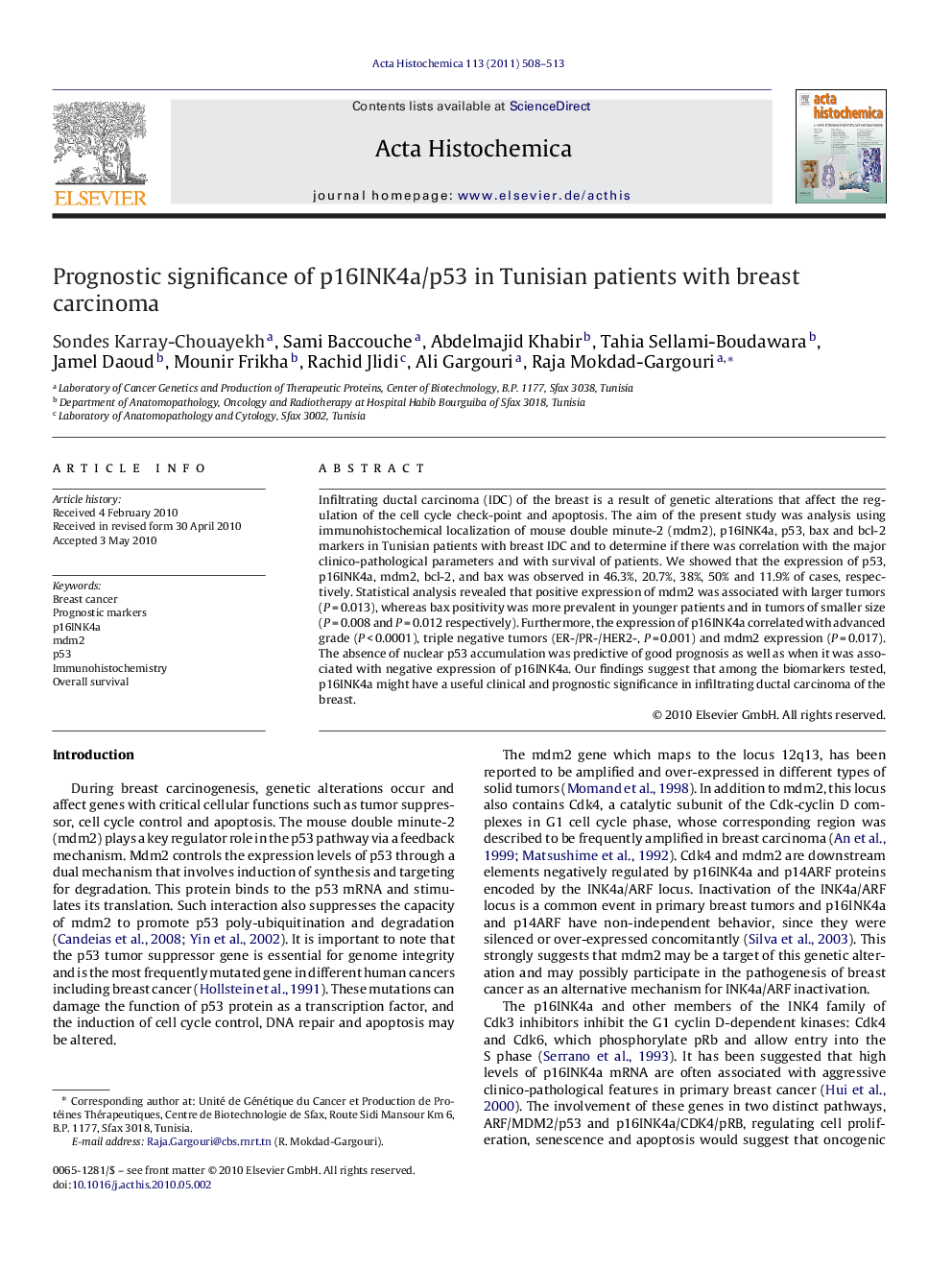| Article ID | Journal | Published Year | Pages | File Type |
|---|---|---|---|---|
| 1924052 | Acta Histochemica | 2011 | 6 Pages |
Abstract
Infiltrating ductal carcinoma (IDC) of the breast is a result of genetic alterations that affect the regulation of the cell cycle check-point and apoptosis. The aim of the present study was analysis using immunohistochemical localization of mouse double minute-2 (mdm2), p16INK4a, p53, bax and bcl-2 markers in Tunisian patients with breast IDC and to determine if there was correlation with the major clinico-pathological parameters and with survival of patients. We showed that the expression of p53, p16INK4a, mdm2, bcl-2, and bax was observed in 46.3%, 20.7%, 38%, 50% and 11.9% of cases, respectively. Statistical analysis revealed that positive expression of mdm2 was associated with larger tumors (PÂ =Â 0.013), whereas bax positivity was more prevalent in younger patients and in tumors of smaller size (PÂ =Â 0.008 and PÂ =Â 0.012 respectively). Furthermore, the expression of p16INK4a correlated with advanced grade (PÂ <Â 0.0001), triple negative tumors (ER-/PR-/HER2-, PÂ =Â 0.001) and mdm2 expression (PÂ =Â 0.017). The absence of nuclear p53 accumulation was predictive of good prognosis as well as when it was associated with negative expression of p16INK4a. Our findings suggest that among the biomarkers tested, p16INK4a might have a useful clinical and prognostic significance in infiltrating ductal carcinoma of the breast.
Related Topics
Life Sciences
Biochemistry, Genetics and Molecular Biology
Biochemistry
Authors
Sondes Karray-Chouayekh, Sami Baccouche, Abdelmajid Khabir, Tahia Sellami-Boudawara, Jamel Daoud, Mounir Frikha, Rachid Jlidi, Ali Gargouri, Raja Mokdad-Gargouri,
